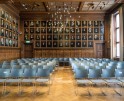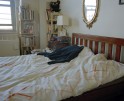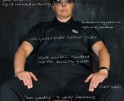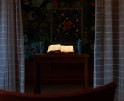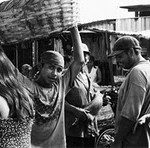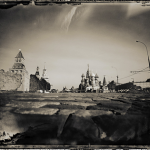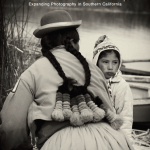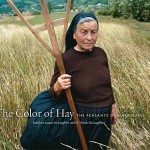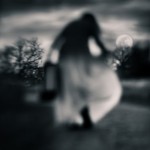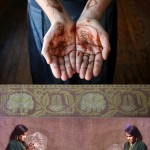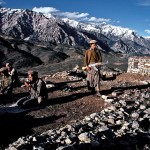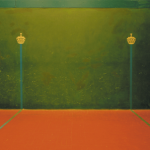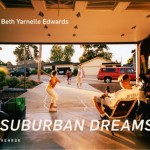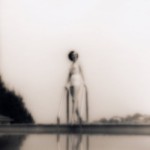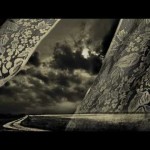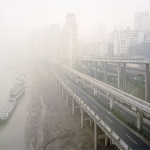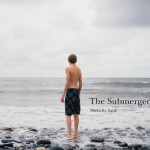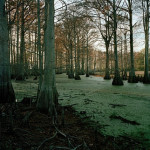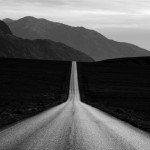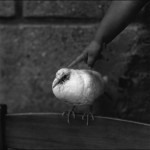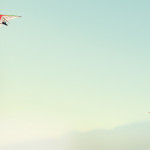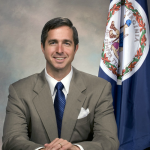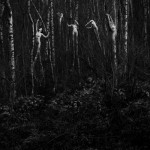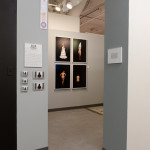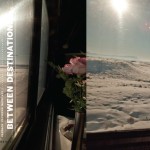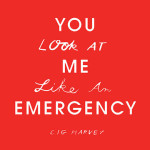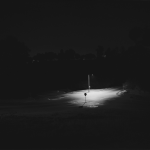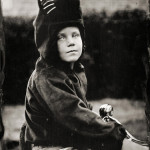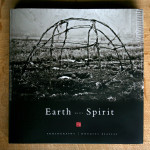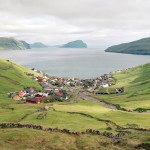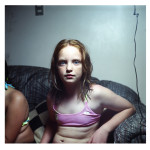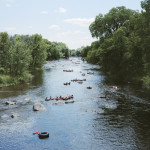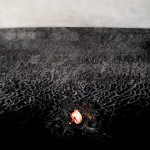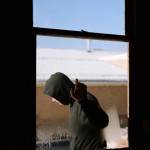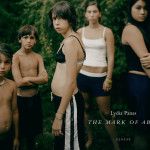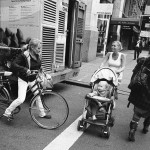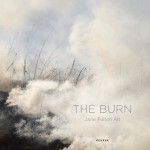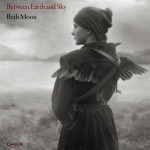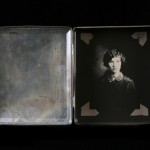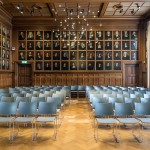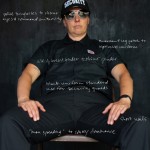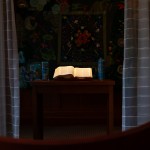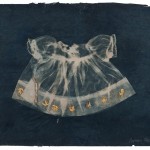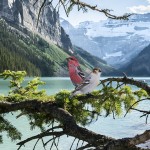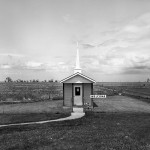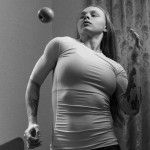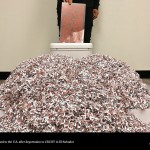Thesis Project: Phillipa Klaiber
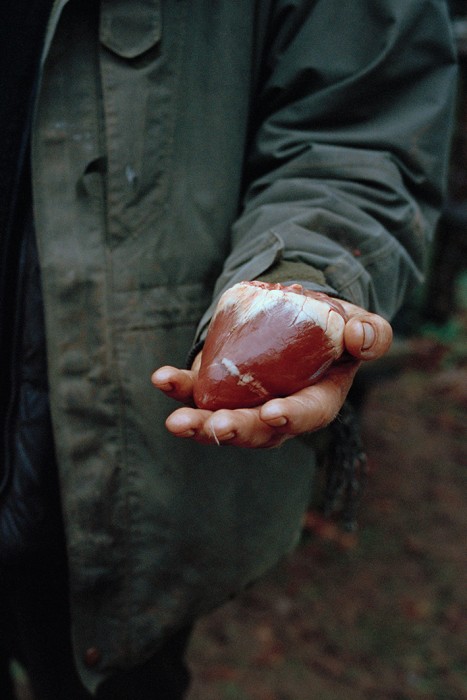
©Phillipa Klaiber, Untitled #8 from the series Vorest, 2020
In my mind, the place described in Phillipa Klaiber‘s Vorest hovers somewhere between the realms of truth and fantasy. Recontextualizing authentic historical documents alongside her own photographs, the artist blurs the line between past and present- what is and what was- as she explores her own relationship to this place as both insider and outsider. The resulting narrative gracefully masters the difficult task of faithfully recording its subject without diminishing its mysterious allure. As if getting lost in the pages of an entrancing novel, these images transport the viewer into a searcher of sorts, allowed to wander through the forest and into the unknown.
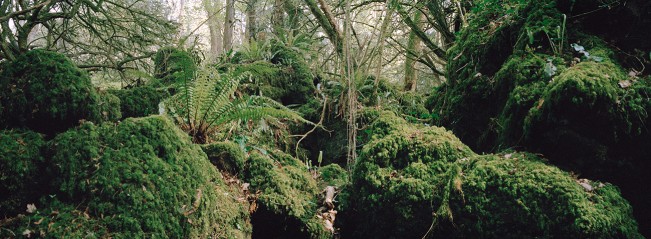
©Phillipa Klaiber, Untitled #1 from the series Vorest, 2019
Vorest
On the English side of the Welsh border is the Forest of Dean. It is an ancient place, once the hunting reserve of Kings. It is a forest of plantation and ancient woodland, of heath land, quarries and mines. Locally it is known as the Forest, and its inhabitants, Foresters.
There is an idea found in literary and pictorial Romanticism that to soften our confusion about what it means to dwell on the earth, we should endeavour to return to it in our everyday lives. In this forest there is a collective desire among the inhabitants to maintain the ecological balance of their land, which serves as the foundation of their culture and collective memory.
Vorest considers the relationship between the narratives of the past and the environment in the present; a shift in perspective from the modern idea of ownership of land, to a more balanced relationship with it.
This work combines my own photographs with digitally sourced aerial images and archival material found locally. It considers the land in detail, its topography, traces of past human activity and our role within it.
I grew up on the border of the Forest. In this landscape, I am both a Forester and an outsider. Through Vorest, I endeavour to better understand this land and our place within it. – Phillipa Klaiber
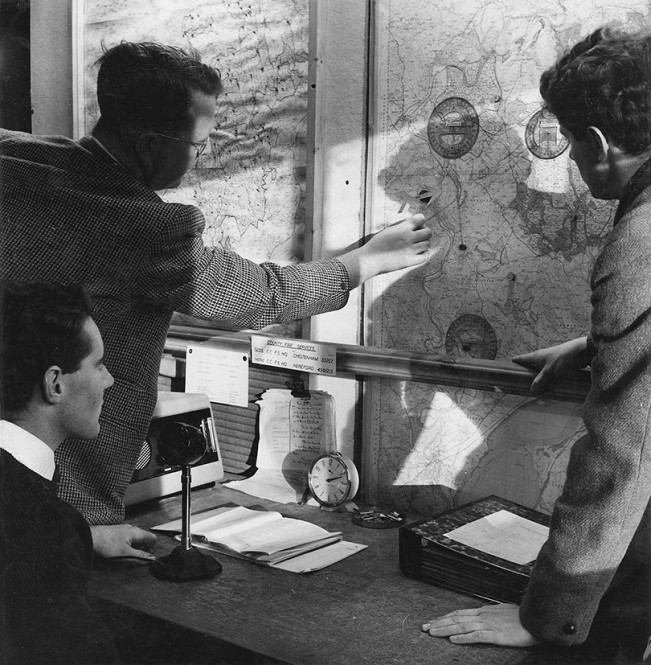
©Phillipa Klaiber, Untitled #2 from the series Vorest, (Archive photograph from the Dean Heritage Center collection) sourced, 2019
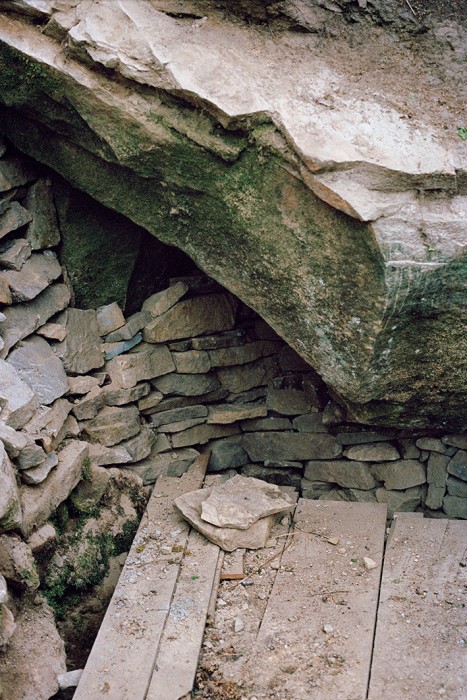
©Phillipa Klaiber, Untitled #3 from the series Vorest, 2019
Kellye Eisworth: In this time of social-distancing and greater isolation, how have you adapted your studio practice to the current situation, and how is it impacting the work you’re making now?
Phillipa Klaiber: As we approached lockdown, I was in the early stages of disseminating Vorest. A portfolio of the work and most recent version of a book dummy were almost ready to print. After working in a very introspective way, I was ready to start showing the work, searching for opportunities and opening dialogues. The latter has not changed much, but as it is not possible to make the physical work at the moment, I have been re-imagining Vorest in a digital context.
For me, the first few weeks of greater isolation have been a time for reflection and working on the foundations of my practice. We are now in week 5, and I am reaching new conclusions on the wider contexts of my practice that I might not otherwise have made.
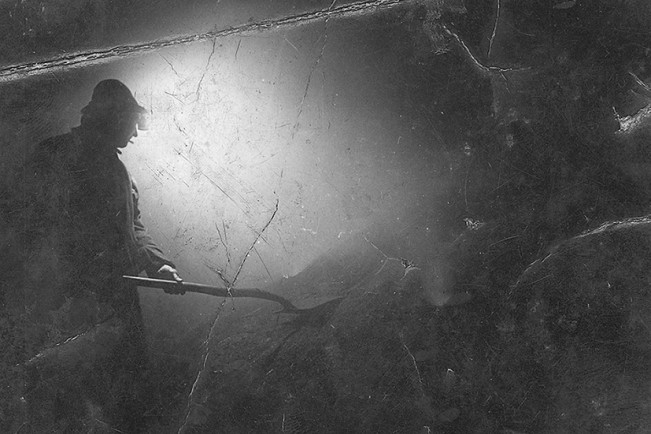
©Phillipa Klaiber, Untitled #4 from the series Vorest, (Archive photograph from the Dean Heritage Center collection) sourced, 2019
KE: As the traditional model of brick and mortar exhibition spaces become more difficult to sustain, both the arts organizations and the artist need to find solutions to sharing photographs. How best can an organization support the artist and visa versa?
PK: I think it is now even more clear that there needs to be improved funding for the arts in general. So many of us are sitting at home, with screens as our only connection to our communities, entertainment and media consumption. Online creative content has increased hugely over the past few weeks, as creatives and audiences navigate these uncertain times in the shared experience of art. But I think there is a danger of this becoming the norm when the social restrictions are lifted. I hope that this period will be a turning point, and the arts will be recognised for their importance in social and personal well-being, but I cannot be sure.
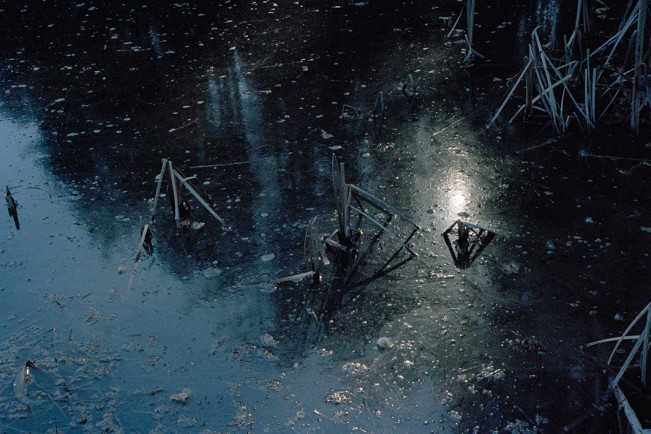
©Phillipa Klaiber, Untitled #5 from the series Vorest, 2019
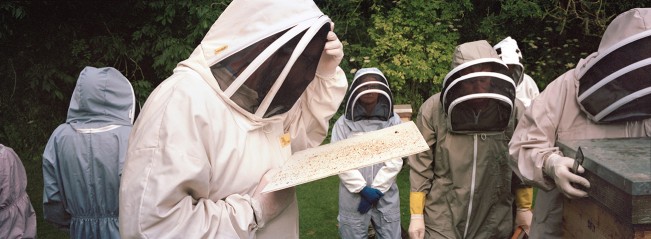
©Phillipa Klaiber, Untitled #6 from the series Vorest, 2019
KE: How are you finding community (online and in person) in a climate in which we increasingly rely on digital platforms to connect with each other?
PK: I find a sense of community comes from knowing this is a shared experience. I am part of a group of women photographers in Bristol and the surrounding area. At the start of the year, we began forming a new collective, Shifting the Gaze. We feel very strongly about the state of the photographic world and aim to create a platform of empowerment and support for ourselves and for young women graduating into the wider community. This foundation of support is helping us all at the moment, to share our feelings and work on strategies to continue our practices.
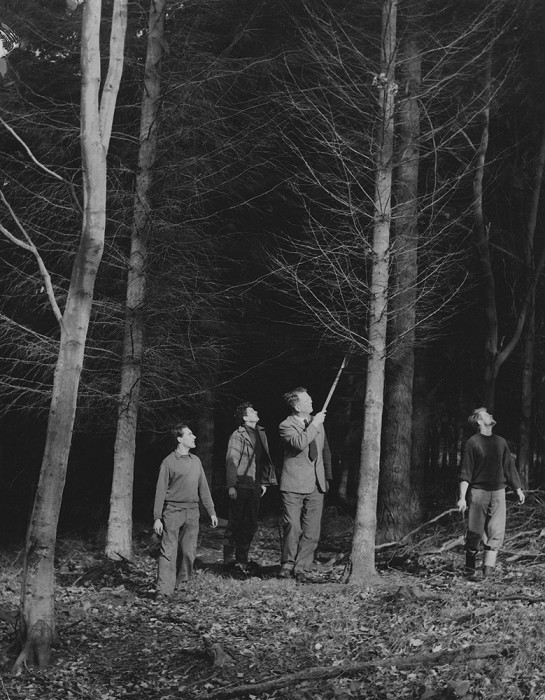
©Phillipa Klaiber, Untitled #7 from the series Vorest, (Archive photograph from the Dean Heritage Center collection) sourced, 2019
KE: What are your thoughts on being a photographer today?
PK: I have always been excited, and apprehensive about pursuing life as a photographer. Where I live, in Bristol, the photography community has grown rapidly over the past 5 years. It is exciting to experience and contribute to that growth, as I work towards finishing an MA in Photography. I am apprehensive about sustaining an income that allows me to focus on my practice, and finding that careful balance between a day job and my work. In these uncertain times, these feelings are amplified.
I see my practice as the beginning of my life’s work. Photography is my language, and with it I am working towards contributing to the wider conversations on ecology, climate change, and our relationships to our environments.
I often wonder about the future of photography. I think, like so many things in our lives, it will be different now.
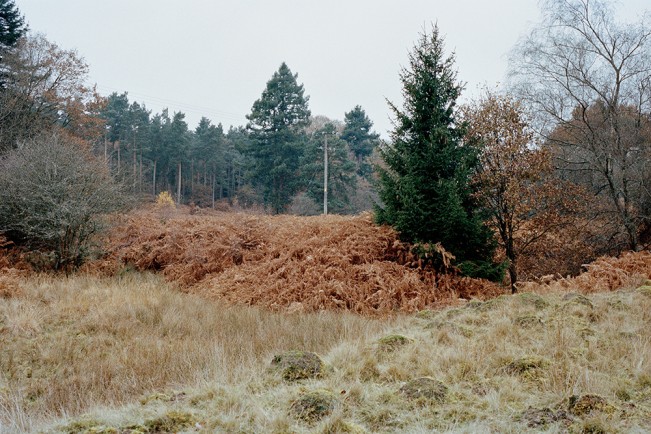
©Phillipa Klaiber, Untitled #9 from the series Vorest, 2020
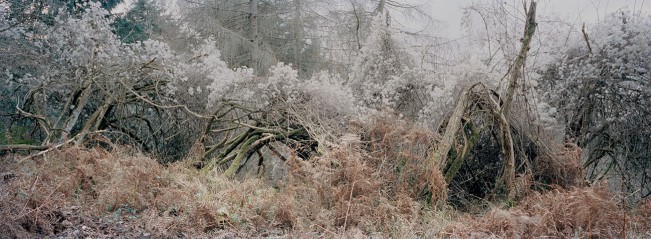
©Phillipa Klaiber, Untitled #10 from the series Vorest, 2019
Phillipa Klaiber (b.1992) is a long-form documentary photographer, whose projects are rooted in our connection to the land, social identity and the human need to belong. Her most recent work, Vorest, is a meditation on the changing landscape of the Forest of Dean.
In 2019, she was shortlisted for the Film Photo Awards and GRAIN Bursary. Phillipa is currently pursuing an MA in Photography at the University of the West of England (UWE Bristol). In June 2020, Vorest will be exhibited at the Martin Parr Foundation.
Instagram: @phillipaklaiber
Posts on Lenscratch may not be reproduced without the permission of the Lenscratch staff and the photographer.
Recommended
-
Review Santa Fe: Leslee Broersma: Tracing AcademiaFebruary 11th, 2026
-
Review Santa Fe: Ilana Grollman: Just Know That I Love YouFebruary 10th, 2026
-
Review Santa Fe: jessamyn lovell: How To Become InvisibleFebruary 9th, 2026
-
Review Santa Fe: Julia Cluett: Dead ReckoningFebruary 8th, 2026
-
Review Santa Fe: Elizabeth Z. Pineda: Sin Nombre en Esta Tierra SagradaFebruary 6th, 2026

